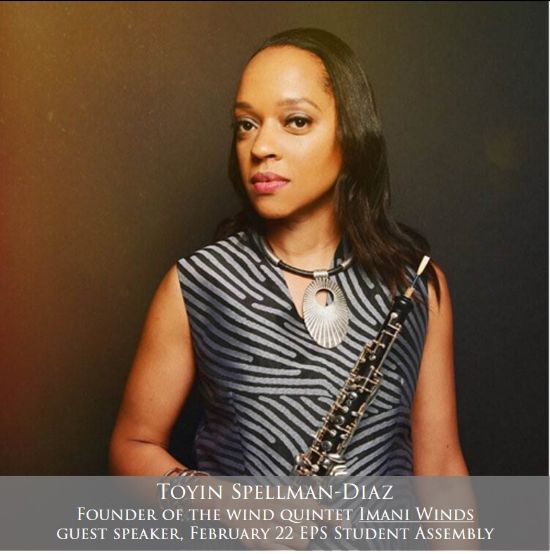
The Importance of Representation
By Bess McKinney and Dr. Ed Castro, EICL Coordinators
Representation matters. How, why, and when we see people who look and act like us—in the reading for our classes, in who is teaching in our classrooms, in the leads of the films we watch, and the news we see—matters. Study after study shows that it often shapes how we see ourselves and others (see this article, this scholarly paper, or this book for just a few examples of these discussions). We know as staff and faculty at EPS that whether our students, all our students no matter their racial, ethnic, or gender identity, can see themselves in the scholars we discuss, the images we share, and the stories we tell, is critical not only in how they see themselves but also how they see each other. Awareness months–February’s Black History Month, March’s Women’s History Month–offer a critical reminder of the importance of representation. As James Baldwin said, “not everything that is faced can be changed; but nothing can be changed until it is faced.” If we are to truly “inspire students to create a better world,” we must face all of our history and lift up all of who we are.
Thus, this month, in and out of classes, EPS students have been engaged in conversations about the unacknowledged and sometimes hidden history of African-Americans. Fifth and sixth graders watched a stage production of Romeo and Juliet that centered around race and debriefed what this production meant for us, today, in the United States. Seventh graders have been digging into March, the late John Lewis’s graphic memoir about his role in the civil rights movement. In chemistry, students have highlighted notable black women in STEM. Yoga classes have been discussing the history of Black yogis. In Spanish, classes have begun with Afro-Latino music. Humanities classes in the eleventh grade have been focused on writing from the Harlem Renaissance, Malcolm X, James Baldwin, and the fight for full equality for African Americans. The list goes on. Outside of the classroom, we have highlighted the whitewashed stories of Muhammad Ali and hidden histories of Odetta and Gordon Parks in Student News updates. We held lunch discussions about why Black History Month matters and watched Hair Love. And on February 22, Upper Schoolers had a chance to meet and talk with Ms. Toyin Spellman-Diaz, a founding member of the Grammy-nominated wind quintet Imani Winds, and hear, first hand from her, how and why representation and speaking truth about our history matters.
However, we know, too, that if we discuss Black history only in February (or women’s history only in March) we reinforce and exacerbate the “unseen-ness” we are working, as educators, to fight against. We continue to work to ensure that our year-long curriculum raises all of our voices.

